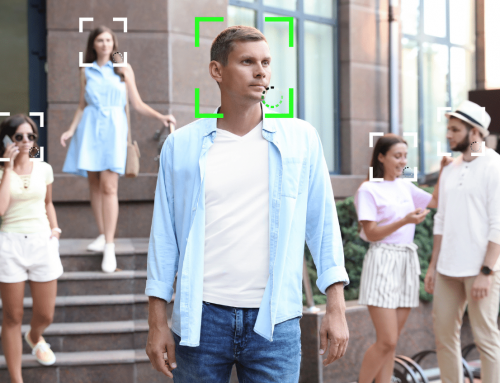The invisible danger at the edge of the pool: data protection in the age of artificial intelligence
Imagine you are relaxing in an outdoor pool and suddenly a signal sounds. A lifeguard rushes over because an AI with cameras and motion detection has detected your unusual movements. A harmless misunderstanding or a necessary safety check? But behind this modern surveillance technology lurks a question that is not so easy to answer: how secure is our data protection when cameras are constantly monitoring us?
Smart technology - and its downsides
In more and more swimming pools, artificial intelligence is helping lifeguards to keep an overview - faster than ever before. Cameras monitor the pool and even detect if a person remains motionless in the water for too long. But what looks like a clever safety measure at first glance raises major data protection issues. The AI collects personal data, such as how many people are in the water or what movements they make. The consequence: a potential violation of the privacy of the users.
The technology is already in use in some swimming pools in Baden-Württemberg. In Freudenstadt, for example, this AI technology has been used since summer 2023 to detect dangers such as overcrowding or the risk of drowning. But what happens to the data that is collected? This is where it gets tricky. The images that are transmitted to the server in real time can quickly contain personal information about visitors - and this can cause legal problems.
Data protection as a stumbling block - what the authorities say
Tobias Keber, Baden-Württemberg's data protection officer, warns that many swimming pools and local authorities are underestimating the risks of AI monitoring. Off-the-shelf software solutions in particular do not always offer the necessary data protection. There is a lack of clear legal regulations to control the handling of personal image data in the context of these technologies. At present, old regulations from the state data protection act still apply, but these are not optimally adapted to the requirements of modern technology. This means that there is a risk that people's privacy will be violated without anyone noticing.
The need for legal adjustment
The introduction of AI in swimming pools is an impressive example of how quickly technology and legislation can drift apart. Everything changes quickly in the digital world - and the legal framework is often left behind. It is high time that legislators created clear and up-to-date regulations for dealing with artificial intelligence and personal data. Until then, swimming pools and administrations must carefully consider how they use this technology without jeopardizing the rights of swimmers.
Is AI technology really the right way forward?
The idea that AI can protect us from dangers in the pool is tempting. But the question remains: Can data protection really be safeguarded in the process? Especially in public facilities such as swimming pools, we need to ensure that no one is monitored without their knowledge and consent. The balance between innovation and privacy is difficult to strike, as it seems at first glance.
Between security and privacy - where do we draw the line?
It's fascinating how AI is making its way into so many areas of life - but this is also where the problem lies. Technology can do more than we ever dreamed of, but without clear rules for handling personal data, it quickly becomes a data protection nightmare. Pools need to ask themselves: is it really necessary to record a swimmer's every movement just because it is technically possible? A little less surveillance wouldn't do any harm to safety - and certainly not to privacy either!







